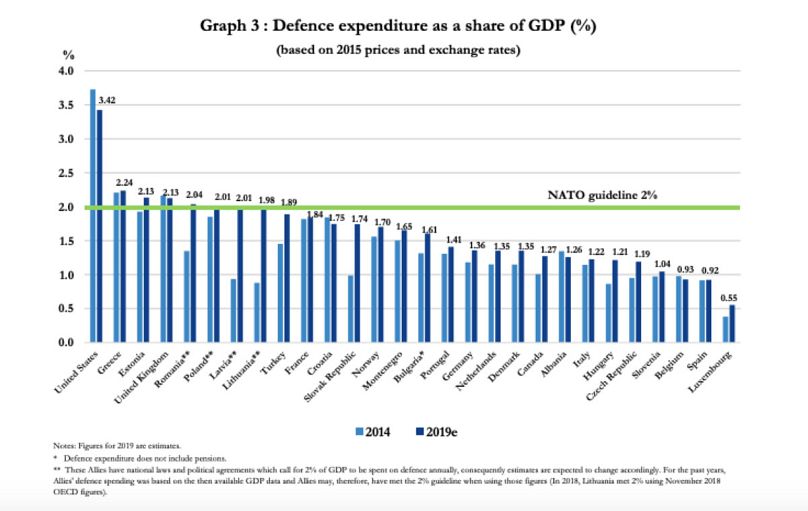European countries have been repeatedly admonished by US President Donald Trump since his election for not spending at least 2% of their GDP on defence expenditures.
European countries and Canada will boost their defence spending for the fifth year in a row in 2019, latest NATO figures show, as allies convene in Brussels on Wednesday to discuss burden sharing and "Russia's continuing violation" of a ballistic treaty.
 ADVERTISEMENT
ADVERTISEMENT
 ADVERTISEMENT
ADVERTISEMENT
European countries have been repeatedly admonished by US President Donald Trump since his election for not spending at least 2% of their GDP on defence expenditures.
Most will once again fail to reach that particular threshold this year with only six European countries expected to respect the NATO pledge. They are Greece, Estonia, the UK, Romania, Poland and Latvia.
Still, spending by European countries and Canada is forecast to increase by 3.9% overall with every state — bar Croatia and Belgium — seen boosting their spend to an average 1.55% of GDP, compared to 1.51% last year.
NATO Secretary-General Jens Stoltenberg tweeted "the trend is good."
"By the end of next year, European Allies and Canada will have added a cumulative total of well over $100 billion (€88 billion) since 2016," he added.
The figures were released ahead of a two-day NATO meeting starting on Wednesday in Brussels during which defence ministers will discuss progress on burden sharing, new technologies and "Russia's violation" of the Intermediate-Range Nuclear Forces (INF) Treaty.
Russian lawmakers voted early this month to suspend the country's participation in the 1987 treaty with the US which banned the two nations from producing and deploying missiles with ranges between 500 and 5,500 kilometres.
READ MORE: What is the INF treaty?











